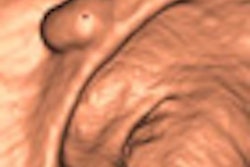
LONDON (Reuters), Mar 27 - Two new techniques using different approaches to see molecular changes inside people's bodies could lead to faster, more detailed imaging scans that better detect health problems, researchers said on Thursday.
Both MRI technologies rely on manipulating the spin of molecules to provide more detailed scans that one day could rapidly do things like analyze how well a drug is working or tell how fast tumors are growing at the molecular level, they said.
"Our method has the potential to help doctors make faster and more accurate diagnoses in a wide range of medical conditions," Gary Green of the University of York, who led one of the studies, said.
"The technique could ultimately replace current clinical imaging technologies that depend on the use of radioactive substances or heavy metals, which themselves can create health concerns."
Green and colleagues based their technique on manipulating parahydrogen -- the fuel used in space shuttles -- by transferring its magnetism to a range of molecules that are much more easily detected.
This means researchers, who are now testing their technique in animals, could potentially increase sensitivity in some scans by more than 1,000 times so data on biological systems that once took 90 days to record could be obtained in seconds, Green said.
A U.S. research team was able to see these molecules by "hyperpolarizing" some atoms in a sample, adjusting the spins of their nuclei to drastically increase their signal.
This technique creates large imbalances among the populations of those spin states and makes the molecules into more powerful magnets, which produce more detailed images.
"You thus have a signal that, at least transiently, can be thousands or tens of thousands times stronger than regular hydrogen in an MRI," Warren Warren of Duke University, who led the U.S. team, said.
Both sets of researchers published their findings in the journal Science.
Last Updated: 2009-03-26 16:54:43 -0400 (Reuters Health)
Copyright © 2009 Reuters Limited. All rights reserved. Republication or redistribution of Reuters content, including by framing or similar means, is expressly prohibited without the prior written consent of Reuters. Reuters shall not be liable for any errors or delays in the content, or for any actions taken in reliance thereon. Reuters and the Reuters sphere logo are registered trademarks and trademarks of the Reuters group of companies around the world.

















